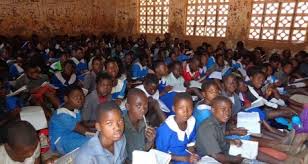The Federal Government’s recent policy pronouncement on eligibility for secondary school final examinations has received mixed reactions from stakeholders.
The policy, announced by the Minister of Education, Prof. Tahir Mamman, sets a minimum age of 18 for candidates sitting for the West African Senior School Certificate Examination (WASSCE) and the National Examination Council (NECO) examinations.
While some stakeholders have applauded the policy as timely, others have described it as a misplaced priority. Some have expressed concerns that the policy could lead to false declarations of age by parents for their children, while others have argued that it could have adverse effects on the education system.
Public Analyst, Mr. Bulus Dabit, described the policy as counterproductive, saying it could lead to candidates enrolling for examinations at “passing centers”. He suggested that the directive should be enforced at the entry point of students into secondary school, which should be at age 11.
Parent, Mrs. Patience Ogobah, said the directive may not work at the current level of candidates sitting for senior certificate exams but should be enforced at the entry point. “They should effect it from entrance to primary school, that is how they will get it right,” she said.
READ ALSO: EndBadGovernance: Stakeholders knock Tinubu’s speech, as organizers intensify protest
However, Professor Akinade Olatunji of the University of Ibadan described the outcry as unnecessary, saying that ideally, no child should be less than 18 in SS 3. He argued that the country’s education policy, which stipulates six years before the commencement of primary one, six years in primary school, and six years in secondary school, all totaling 18 years, was still in place.
Guidance Counsellor, Ms. Larak Sallah, described the policy as laudable, saying that findings revealed that those who gained admission to tertiary institutions before age 18 were more susceptible to joining negative groups, such as cults.

























